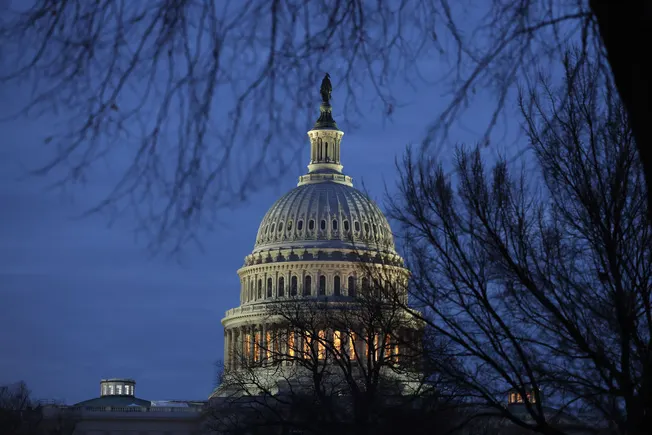Dive Brief:
Nearly 11 million more people would be uninsured in 2034 under the budget reconciliation bill passed by the House, according to an estimate by the Congressional Budget Office released Wednesday.
The analysis from the nonpartisan budget scorekeeper found 7.8 million would lose coverage due to cuts to the safety-net insurance program Medicaid.
Provisions under the House Energy and Commerce Committee’s purview, including the Medicaid policy changes, would lower the federal deficit by $1 trillion. But the bill overall would increase the deficit by $2.4 trillion, according to the CBO.
Dive Insight:
The House narrowly advanced the legislation, which includes a number of healthcare provisions including sweeping cuts to Medicaid, late last month.
One of the major changes to the safety-net insurance program would mandate beneficiaries report work, education or volunteer hours with their state to stay enrolled in coverage. That provision alone would decrease federal spending by $344 billion, according to the CBO.
Additionally, the bill would require states to check enrollees’ eligibility for Medicaid more frequently, and reduce federal support for states that use their own funds to offer insurance to undocumented immigrants.
The CBO estimates 1.4 million people without verified citizenship would lose coverage under these programs in 2034.
The legislation also includes provisions linked to the Affordable Care Act, like ending the annual open enrollment period earlier and preventing beneficiaries who are automatically reenrolled in exchange plans from claiming subsidies.
The CBO estimates 1.3 million people would lose coverage due to ACA provisions under Energy and Commerce, while 2.3 million would become uninsured due to the healthcare policies in the Ways and Means portion of the bill.
Overall, the coverage losses under the bill would roll back about half of the insurance gains made in the U.S. since the ACA, Loren Adler, a fellow and associate director at the Brookings Institution’s Center on Health Policy, wrote on X Wednesday morning.
The nation’s uninsurance rate fell to a record low following the COVID-19 pandemic, boosted by policies that kept beneficiaries continuously enrolled in Medicaid and enhanced financial assistance for coverage on the ACA exchanges. The number of uninsured ticked up last year as those changes expired, but it remained much lower than with pre-ACA rates.
Democrats have lambasted the legislation, arguing it would reduce healthcare access among the poor to provide tax breaks to the wealthiest Americans.
“The Republican health agenda is all about making it harder to get health care,” Senate Finance Committee Ranking Member Ron Wyden, D-Ore., House Ways and Means Committee Ranking Member Richard Neal, D-Mass., and House Energy and Commerce Committee Ranking Member Frank Pallone Jr., D-N.J., said in a joint statement Wednesday. “The results of this cruel system are clear: millions will lose coverage, health care costs will go up for all Americans, and tens of thousands will die.”
Hospital groups have also criticized the legislation, as more uninsured patients would likely increase uncompensated care and hit their bottom lines — especially among safety-net and rural providers.
Providers could lose more than $770 billion in revenue over the next decade under the bill, according to an analysis published last week by the Urban Institute and the Robert Wood Johnson Foundation.
But Republican lawmakers and administration officials have argued the legislation preserves Medicaid for the most vulnerable beneficiaries by cutting out able-bodied enrollees and undocumented immigrants and reducing fraud, waste and abuse in the program.
Still, GOP lawmakers like Sen. Josh Hawley, R-Mo., have raised concerns about the bill, saying it’s a political poison pill that would strip Medicaid coverage from their own voters.
The legislation is now under consideration in the Senate, where lawmakers could change some of its provisions. GOP leaders hope to have the bill on President Donald Trump’s desk by July 4.


